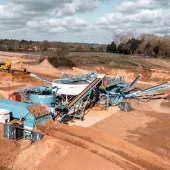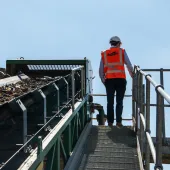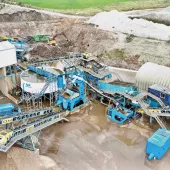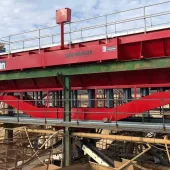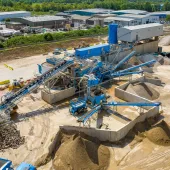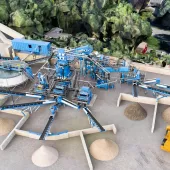Norwegian firm reduces fines with CDE plant
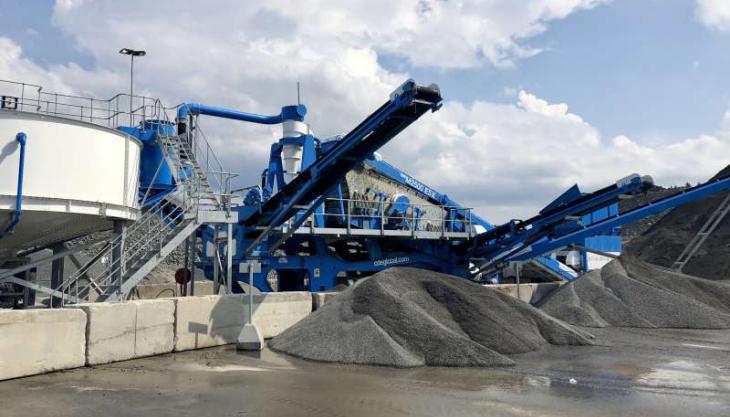
Feiring Bruk report 88 per cent reduction in fines content with CDE wet processing plant
FEIRING Bruk, a family-owned business operating primarily in eastern Norway where they have 10 sites extracting and producing crushed stone, gravel and asphalt, have announced an 88% reduction in fines following the installation of a CDE wet processing plant. The company announced the success of the project at a recent open day event, organized in partnership with CDE.
As well as their multiple sites in the east of the country, Feiring Bruk work for clients across Norway using mobile crushing and screening plants. Modularity and mobility are at the core of equipment designed by CDE and this was an important factor for Feiring Bruk, whose operations rely on portability.
Having amassed fines stockpiles at Lørenskog Quarry, the company was keen to identify a solution that would allow the material to be processed and valuable product recovered.
‘We had a massive warehouse filled with material that we had been unable to exploit,’ explained Trygve Ollendorff, chief executive officer at Feiring AS. ‘With our new facility, we can recover a range of new products our previous system was unable to process.’
The washing plant at Lørenskog Quarry, which has been operational since 2016, consists of an M2500 E5X mobile washing plant with integrated hopper, feed conveyor and P3-75 Infinity Screen and EvoWash sand washing plant. For water processing there is an AquaCycle thickener with automatic dosing station, AquaStore water storage tank and a secure control station.
According to Tormod Waehle, technical manager at Feiring Bruk, laboratory tests have shown significant fines reductions to just 8kg per tonne.
‘After a series of analyses, we have determined that our system washes out 88% of the fines,’ he said. ‘Before washing, the material contains 65kg of fines per tonne, whereas the washed product has just 8kg of fines per tonne. In the 0–20 fraction, we have measured 6.5% fines before washing, whilst after washing the fines content is reduced to 0.75%.’
Eunan Kelly, CDE’s regional manager for Northern Europe, said: ‘A common problem for sand and aggregate processors is finding an outlet for the large volumes of 0–20 produced.
‘Using their new CDE washing plant, designed using the CDE co-creation approach which sees engineers work closely with the customer throughout the design and commissioning process, Feiring Bruk are able to make use of a very large proportion of the excess product.’
CDE systems are designed to recirculate up to 90% of the water used, helping to reduce the volume of fresh top-up water required. In addition to the water conserved within the system, the Feiring Bruk plant has been placed on a sloped asphalt surface that allows water to flow into the water basin, which has been designed to act as a reservoir, thereby creating what is almost a closed system.
According to Feiring Bruk, products extracted using the new washing plant are attracting the attention of new and prospective customers in Norway, thanks to their improved grading accuracy. Uses for the washed material include asphalt and concrete production, cable sand and paving stones.
‘Our customers want drainage gravel in fraction 8–16 to avoid fines. Now we can supply excellent drainage gravel in fraction 4–16 that has been washed and is free of fines,’ commented Tormod Waehle. ‘We’re making much better use of the raw materials.’


